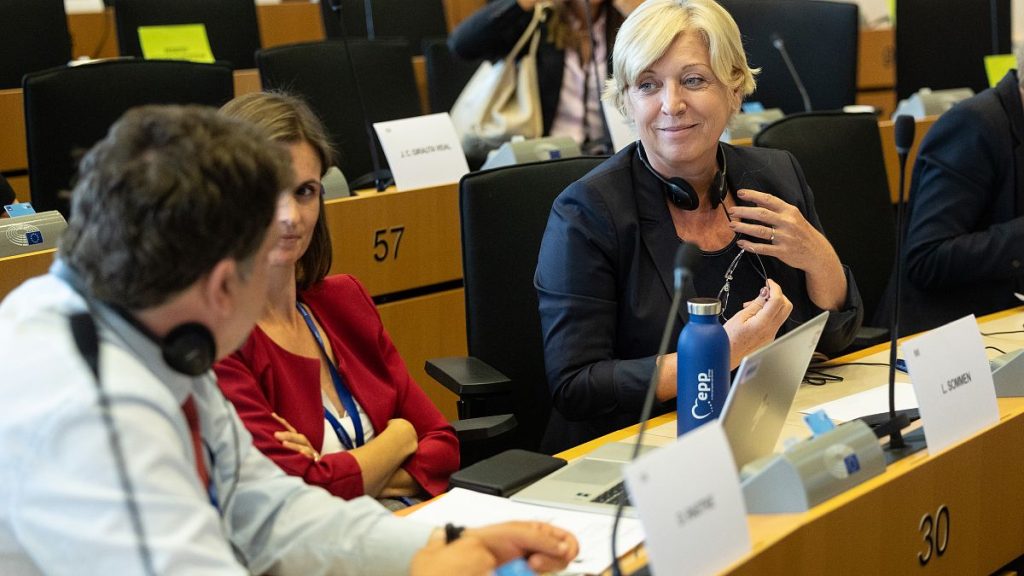The head of Slovenia’s European People’s Party (EPP) delegation, Romana Tomc, has expressed strong opposition to the nomination of Marta Kos as Slovenia’s new commissioner, citing concerns about her lack of executive-level experience and alleged links to the former Yugoslav secret police. Tomc emphasized that Kos’s nomination is “completely unacceptable” and “problematic” for the EPP, the largest group in the European Parliament. She compared Kos’s alleged past associations with the UDBA, the secret police of former Yugoslavia, to being a STASI associate in Germany, highlighting the sensitivities around such affiliations.
Tomc criticized the handling of Kos’s appointment as a “humiliation” for Slovenia, warning that it could harm the country’s reputation within the EU. She accused Prime Minister Robert Golob of caving to pressure from Ursula von der Leyen, the President of the European Commission, in changing the commissioner nominee from Igor Vesel to Marta Kos. Tomc suggested that Vesel would have had a better chance of passing the European Parliament’s scrutiny and implied that Golob’s decision was politically motivated.
The last-minute change in commissioner nominees has led to a political storm in Slovenia, with delays in the confirmation process threatening to disrupt von der Leyen’s plans. Under Slovenian law, Kos must now attend a hearing before the Slovenian National Assembly’s EU Affairs Committee, which could be delayed by up to two weeks as lawmakers seek more information about the circumstances surrounding Vesel’s withdrawal. Tomc stressed that the delay was caused by Golob and not the opposition, as the government failed to provide the necessary paperwork and information.
While Tomc acknowledged that her European Parliament colleagues have not pressured the Slovenian delegation or other MEPs opposing the nomination, she highlighted the importance of respecting Slovenia’s democratic processes. She called on von der Leyen to show more transparency and understanding of the situation, emphasizing that the impasse could be resolved if the government cooperated. Tomc criticized Golob as “the weakest prime minister in the European Union” who is allegedly influenced by von der Leyen’s demands, further complicating the situation.
The controversy surrounding Marta Kos’s nomination has created tensions within Slovenia and raised concerns about the country’s standing within the EU. Tomc’s strong opposition to Kos’s appointment reflects deeper political divisions in Slovenia, with accusations of governmental interference and lack of transparency. The delayed confirmation process and potential backlash from the European Parliament highlight the need for clearer communication and adherence to democratic procedures in Slovenia’s political decision-making. The outcome of Kos’s hearing before the EU Affairs Committee will determine the next steps in resolving the commissioner nomination issue.


